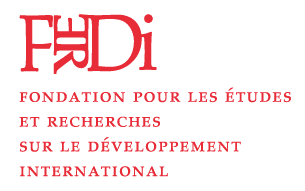Savoirs Éco - Project to Support Economic Knowledge Producing Institutions in Tunisia
Objective
-
€4.5mBUDGET
-
01/02/2023PROJECT START
-
36 monthsDURATION
While the business environment in Tunisia is dynamic and relatively stable, it requires the long-term development of growth and capitalisation strategies in the sectors of its diversified economy: manufacturing industry, transport, agriculture, tourism.
Savoirs Éco: supporting public debate on economic issues
The Savoirs Éco project aims to support public debate on economic issues in Tunisia by strengthening economic knowledge producing institutions (SPSEs).
The term “public debate” is understood as any opportunity giving actors in society the possibility to discuss economic issues: government and public sector (including universities), civil society organisations, the general public, and the media sector which serves to make public the terms of the debate.
The Savoirs Éco project will benefit economic knowledge producing institutions (SPSEs) in Tunisia. This includes:
• Public analysis centres attached to a government body, in particular the Ministry of Economy and Planning, which serve to support decision-making and guide public action
• Laboratories and research centres attached to universities
• Private think tanks: this term includes any entity that produces economic knowledge with legal personality under private law and with non-profit status (non-governmental organisation, association, union)
More specifically, the project aims to encourage the strengthening and emergence of SPSEs working on scientific and operational research. It will also promote the extension, dissemination and experimentation of the analyses produced by the SPSEs, in particular analyses including the issues of social justice and gender equality.
The project’s different lines of action
The project is involved in the entire production chain for economic knowledge, through three main lines of action:
1) Capacity building for SPSEs
Assistance will be provided to:
• The support functions (cross-functional) of SPSEs in various areas: institutional and regulatory, organisational, governance, information system, access to financing, digitalisation, audit and evaluation of public policies, strategies, communication and development of partnerships
• The functions directed related to the production of analyses (database, access to information, research tools, human resources, etc.)
• The staff of SPSEs to improve their knowledge and expertise, through dedicated training, participation in national and international events, the organisation of study visits, and more specific and targeted sessions to support research
2) Assistance to SPSEs with the production of studies and scientific and operational analyses
Technical and financial support will be provided for the production of studies and analyses by SPSEs. The research produced will be required to combine scientific rigour and an operational dimension related to public policies in Tunisia. FERDI will play a key role in the implementation of these activities.The objective of the studies will be to address, from an economic perspective, financial, social and environmental issues that are relevant for Tunisia. Joint work between the SPSEs will be encouraged.
3) Support for the dissemination and application of the analyses produced by the SPSEs
The activities aim to ensure the dissemination of the studies produced in order to inform public debate on economic issues in Tunisia, through:
• Institutional meetings promoting peer-to-peer dialogue and good practices between Tunisian and international SPSEs
• The dissemination and extension of the results of the studies produced, especially through the media and on social networks
• The development of pilot projects based on the research and studies produced beforehand by the SPSEs


